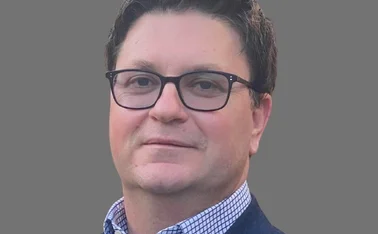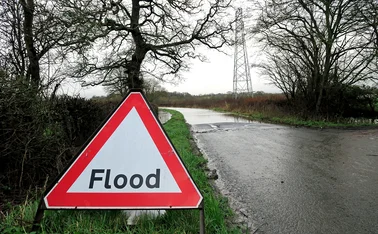
Former Broadmoor psychiatrist faces investigation for role in Ecclesiastical abuse claims

Professor Tony Maden, psychiatrist and the former head clinician of Broadmoor’s dangerous and severe personality unit, is facing two separate investigations by the General Medical Council for his role as an expert witness in Ecclesiastical insurance church abuse claims, Post has learned.
One in eight claims submitted to the GMC are investigated. The possible outcomes of the investigation include: no further action, a warning, agreeing undertakings with the GMC to address a problem with their practice, or the case being referred to the Medical Practitioner Tribunal Service for a substantive hearing. Maden continues to practice.
In one case it is alleged Ecclesiastical is citing litigation privileges, a legal right but a decision criticised as “immoral” by the claimant, to prevent the GMC from accessing relevant documentation.
Ecclesiastical declined to comment. Maden told Post he was unaware of one of the complaints.
Maden said: “The name Julie Macfarlane means nothing to me. I do not believe I have been notified of any complaint relating to someone of that name.”
A Church of England spokesperson told Post: “The Church is committed to listening to and responding well to survivors and voted unanimously at its Synod in February to work towards a more fully survivor-centred approach. We have made representations to EIG on behalf of a small number of survivors who asked us to do so, and this had included cases where Tony Maden had been used.”
Professor Julie Macfarlane, a dispute expert based in Canada and survivor of church abuse in Chichester, is one of the complainants. Macfarlane and her lawyer were instrumental in drafting Ecclesiastical’s 2016 guiding principles for abuse claims. She has waived her right to anonymity.
In Macfarlane’s complaint, seen by Post, she alleges Maden “breached both his duty to the court to provide an informed neutral assessment (it was neither informed nor neutral) and to his profession to act with integrity”.
Quotes from Maden’s report into Macfarlane for her 2015 case, seen by Post, included as evidence in the complaint, included that: “The fact that she took so long to raise this issue suggests it cannot have seemed to her like much of a problem.”
Maden further argued that the reason the claimant had gone far away for university was not to escape her abuser, former vicar Meirion Griffiths who was jailed for eight years in February, but because “home was not entirely happy for her”.
Because Macfarlane went on to lead a successful life, according to Maden’s report, there is “little or nothing to suggest” she had been impaired by any mental illness.
Macfarlane opposed points raised by Maden, including one which she says he suggested “I could certainly have stood up to the minister because I was assertive”.
Macfarlane alleged in the complaint: “Maden does not exhibit the slightest shred of genuine understanding of sexual abuse, of power dynamics, of the fear but also the necessity victims feel about taking action, nor does he show any empathy for victims. What this report does exhibit in abundance is the use of every bit of tortured logic at Dr Maden’s disposal to reinforce the legal case of his employer: the Church of England.
“In producing this report – which my psychologist, a regular expert witness herself, described as ‘the most ridiculous thing I have ever read’ – Dr Maden breached both his duty to the court to provide an informed neutral assessment (it was neither informed nor neutral) and to his profession to act with integrity.”
Expressing concern for other claimants, Macfarlane told Post: “He’s supposed to be appointed as a neutral expert - that’s his role.”
Desktop
Maden was also the desktop expert in the case of a claimant, known as Tony, who was hospitalised on suicide watch at the time. The report produced attributed just 10% of the claimant’s problems in later life to abuse (reduced to 5% as one incident of abuse was not part of the claim), a factor in Ecclesiastical offering a lower amount in a further round of settlement negotiations than previously,as shown in documents obtained via a subject access request – a move blasted as “unethical” by a leading bishop and safeguarding expert Ian Elliot. In the 2016 case a request to use a joint expert had been rejected by Ecclesiastical.
Tony told Post: “Maden’s own report on me was astonishing. It was written without even meeting me. To understand the impact of abuse on an individual you need to be able to understand that person and the difficulties they have faced and are facing. I believe it is medically and ethically improper to reach any percentage causation under such circumstances, with such limited experience and material. I strongly believe that this practice of producing remote ‘desktopping’ reports should be wiped out.”
Tony continued: “If their experience of the civil claims system is adversarial and negative, it would be very uncharacteristic for a victim to complain about what has happened. To do so would involve re-visiting the original trauma - again, while also experiencing fresh trauma from the additional re-abuse. It is very uncommon that someone would complain. I have spoken to a number of fellow victims who have been through the ‘mill’, felt very let down and re-abused, but felt it would be too painful to re-visit the detail of their case to the detail that would be required to submit a complaint.”
Earlier this year Maden confirmed to Post he was sometimes approached by insurers to produce desktop reports on claimants he was not expected to meet.
Haringey
The psychiatrist acted as an expert witness for the defence in a recent failed £1.1m Haringey Council appeal spearheaded by Mercantile Indemnity, based on action originally involving RSA as the insurer.
Haringey Council, which faced anger from claimants and negative publicity over how the case was handled, blamed its insurers for the legal action and arguments within.
Making a diagnosis of personality disorder, Maden had testified to inconsistencies in the claimant’s accounts, picking out details such as whether or not the claimant’s parents would have gone to see him perform in a play. In his report he had argued the abuse had not made “more than a minor contribution” to the claimants mental health problems, court documents show.
The expert suggested it was substance abuse and work pressure that had contributed to a worsening of his personality disorder and led to the claimant’s breakdown in 2011, rather than the sexual abuse he had endured as a teenager at the hands of his PE teacher, Andrew Adams.
The judge, Mrs Justice Cutts, found: “The reason that he [the claimant] has not been able to work since 2011 and will have difficulty finding work in the future is not confined to the 2011 breakdown. It is attributable to his complex PTSD, diagnosed after that breakdown and caused, as I have found, by the abuse. The damage arises from the sexual abuse.”
The appeal judges agreed with her verdict - though flagged concerns about the acceptance of the diagnosis as an “error of law” because complex PTSD was not yet a published diagnosis.
Lady Justice Nicola Davies noted: “Professor Maden conceded that if the court accepted the respondent’s account that he was groomed in the manner alleged, his opinion as to the contribution of the abuse to the respondent’s personality disorder would be different. Professor Maden’s evidence on causation was dependent on the findings of primary fact relating to the abuse with which I do not take issue. It follows that Professor Maden’s opinion upon causation is undermined by the court’s findings on those facts.”
When approached by Post Maden responded: “I believe your reporting of the Haringey case is also selective in a way that is damaging to me. Could I suggest that if you had not read this judgment or did not understand it, you should not have used this case to trash my reputation? ” He highlighted the following notes in the Appeal Court Judgment because of its “positive comments”:
- At the time of the trial, Complex PTSD was not included within the international classification of diseases published by the World Health Organisation. Dr O’Neill stated that Complex PTSD is to be accepted as a diagnostic category within the publication in 2020. In giving evidence Dr O’Neill did not rely upon any articles in the medical literature which reference Complex PTSD, its symptoms nor the proposed classification. Professor Maden did rely upon literature to support his contention that the Respondent was suffering from a form of personality disorder rather than PTSD. The judge recorded that Professor Maden stated that he and other experts had reservations about the appropriateness of a diagnosis of PTSD or Complex PTSD. The judge accepted this evidence and described it as “a respected view” (paragraph 279).
- In my judgment, in assessing the evidence of the two experts and their respective diagnoses, the medical history of the Respondent, in particular since his breakdown in 2011, was of relevance. Between 2011 and 2014, when the Respondent was an inpatient at the Capio hospital, he was assessed by five different consultant psychiatrists, none of whom diagnosed PTSD or Complex PTSD. These diagnoses were material. Account was taken of them by Professor Maden in reaching his diagnostic conclusion. It is of note that from 2012 onwards those treating the Respondent in the Capio hospital were aware of the fact that he had spoken to the police and was alleging sexual child abuse. The judge records that it was as the Respondent started to speak with the police and the abuse came to the forefront of his mind that the symptoms became more obvious. It would appear to follow from this finding of the judge that the symptoms would have been increasingly obvious during the period 2012 to 2014 when the Respondent was being seen and treated at the Capio, not least in 2013/14 by Dr Muller-Pollard who did not diagnose Complex PTSD.
- The approach of the judge to the opinions of the treating clinicians at the Capio hospital is set out in paragraph 288 of her judgment (paragraph 178 above). In my judgment, the judge’s approach fails to give any or any adequate weight to the diagnoses of the treating clinicians who were assessing and treating the Respondent as an inpatient on no less than seven separate occasions.
- Further, in preferring the evidence of Dr O’Neill, the judge was accepting a diagnosis which has yet to be formally included within the World Health Organisation international classification. If that is a course which the court is minded to take, then real rigour is required in assessing the relevant evidence in respect of such a diagnosis. I regard the failure by the judge to give any or adequate weight to the diagnoses of the treating clinicians between 2011 and 2014 as representing an error of law.
.
Consultant
Using documents from publicly available court judgment archive Baili, Post found one instance of Maden acting on behalf of child sexual abuse claimants from 2016 onwards, compared to 16 appearances or examinations for defendants.
Most historic child abuse cases are settled before they make it before a judge. This means there is no public record of many settlements and how they were reached. It is, therefore, not possible to say exactly how many cases an expert has been involved in.
Consultant psychiatrists in CSA claims will generally sit with patients for upwards of an hour before supplying a report, with claimant lawyers suggesting experts will generally earn a fee of between £2500 to £4000 for each case. IICSA noted in 2019 it is less traumatic for claimants to use one joint expert, while it is specified in Ecclesiastical’s 2016 guiding principles that a joint expert should be used.
Phil Johnson, the chair of survivor group Macsas, was assessed by Maden when he initiated his 2010 claim against Ecclesiastical. The insurer hired Maden to assess Johnson based on medical records, a previous report by another expert and a one page resume from a psychotherapist. The two met face-to-face once for “about 45 minutes” according to Johnson.
After sending a letter pointing out 34 examples of alleged “inaccuracies, supposition, speculation and in places fabrication” in Maden’s 2010 assessment of him, seen by Post, Johnson alleges the psychiatric profile provided arguing he was “genetically predisposed” to mental health problems and, therefore, the abuse was not responsible for his difficulties was quietly dropped by the insurer’s lawyers.
Many survivors will begin to make a claim because they have started on a course of therapy and are seeking to recoup the costs, according to Johnson. He has been involved with survivor groups for over 20 years, describing the claims process as like “horse trading” with very few cases ever making it to court.
He accused insurers of using a “very hostile medical examination to undermine the victims”.
“The purpose of it is really to minimise the damages,” Johnson criticised.
Background
Maden has acted as an expert witness in at least 30 court cases since 2010, including in compensation claims from victims of black cab serial rapist John Worboys and the case of teacher Shaiira Alexis whose student spiked her water with cleaning fluid after the educator allegedly called her a “white prostitute”.
The psychiatrist is perhaps best known for his work at high-security psychiatric hospital Broadmoor, which has housed notorious individuals such as Ronnie Kray, Peter Sutcliffe and Ian Brady. Maden served as former lead clinician of Bracknell-based Broadmoor’s Paddock Centre, a dangerous and severe personality disorder unit shuttered by the government in 2012.
He has appeared on television documentaries including Channel 5 show Meet the Psychopaths and Inside Holloway and features in journalist Jon Ronson’s book The Psychopath Test.
The emeritus professor of forensic psychiatry at Imperial College London has written or contributed to at least 36 publications, with a focus on violent offenders and substance misuse. He does not appear to have contributed to literature around child abuse.
*Amended 17 September to include comment from Professor Maden
Only users who have a paid subscription or are part of a corporate subscription are able to print or copy content.
To access these options, along with all other subscription benefits, please contact info@postonline.co.uk or view our subscription options here: http://subscriptions.postonline.co.uk/subscribe
You are currently unable to print this content. Please contact info@postonline.co.uk to find out more.
You are currently unable to copy this content. Please contact info@postonline.co.uk to find out more.
Copyright Infopro Digital Limited. All rights reserved.
As outlined in our terms and conditions, https://www.infopro-digital.com/terms-and-conditions/subscriptions/ (point 2.4), printing is limited to a single copy.
If you would like to purchase additional rights please email info@postonline.co.uk
Copyright Infopro Digital Limited. All rights reserved.
You may share this content using our article tools. As outlined in our terms and conditions, https://www.infopro-digital.com/terms-and-conditions/subscriptions/ (clause 2.4), an Authorised User may only make one copy of the materials for their own personal use. You must also comply with the restrictions in clause 2.5.
If you would like to purchase additional rights please email info@postonline.co.uk








